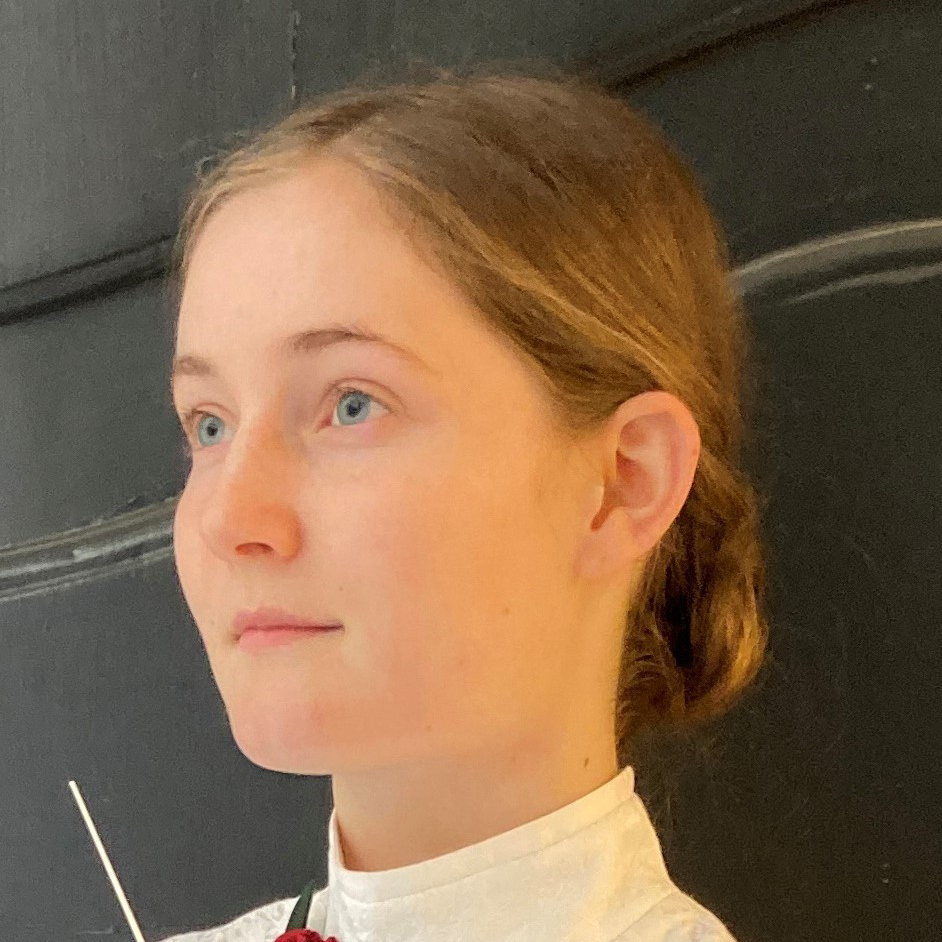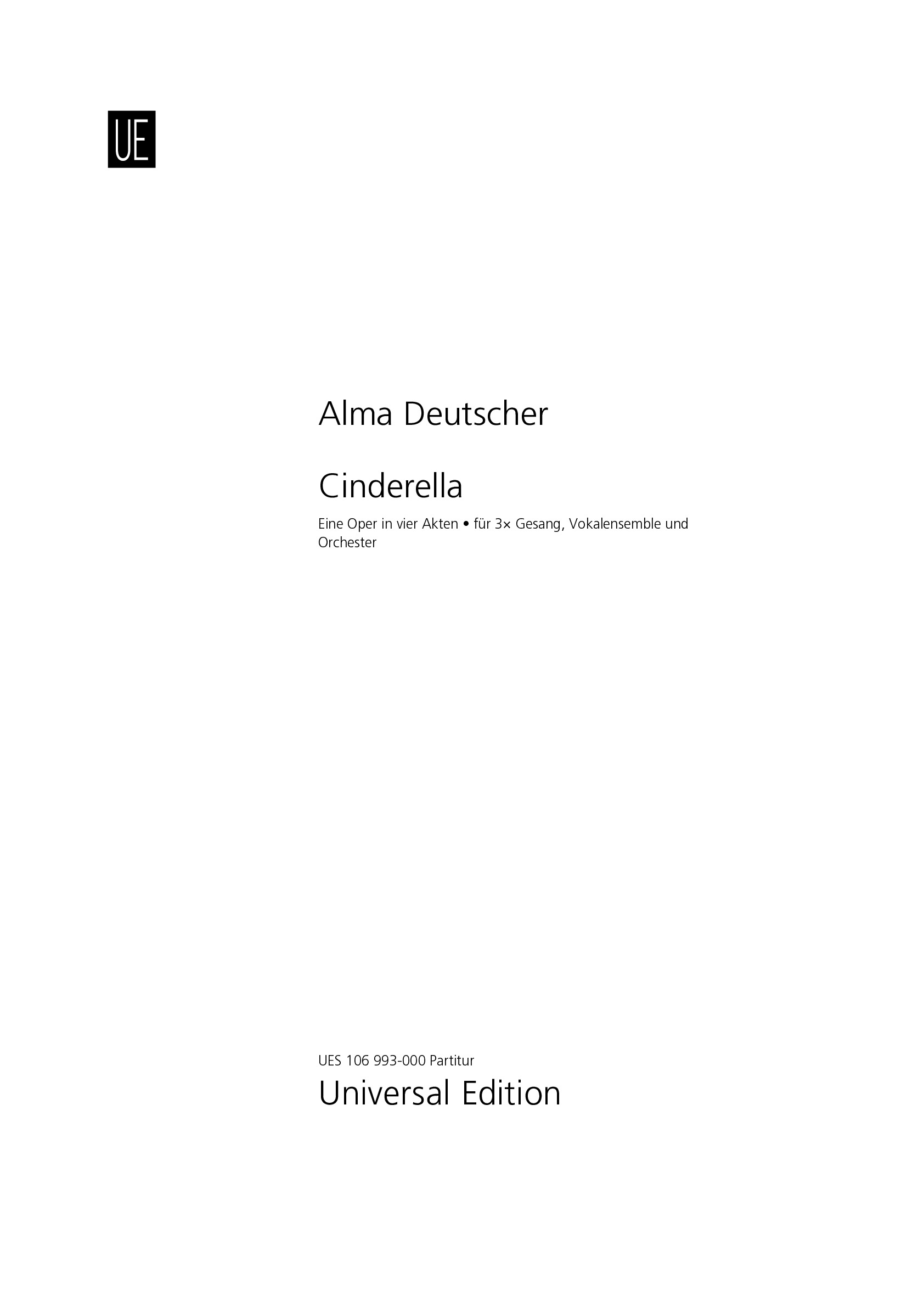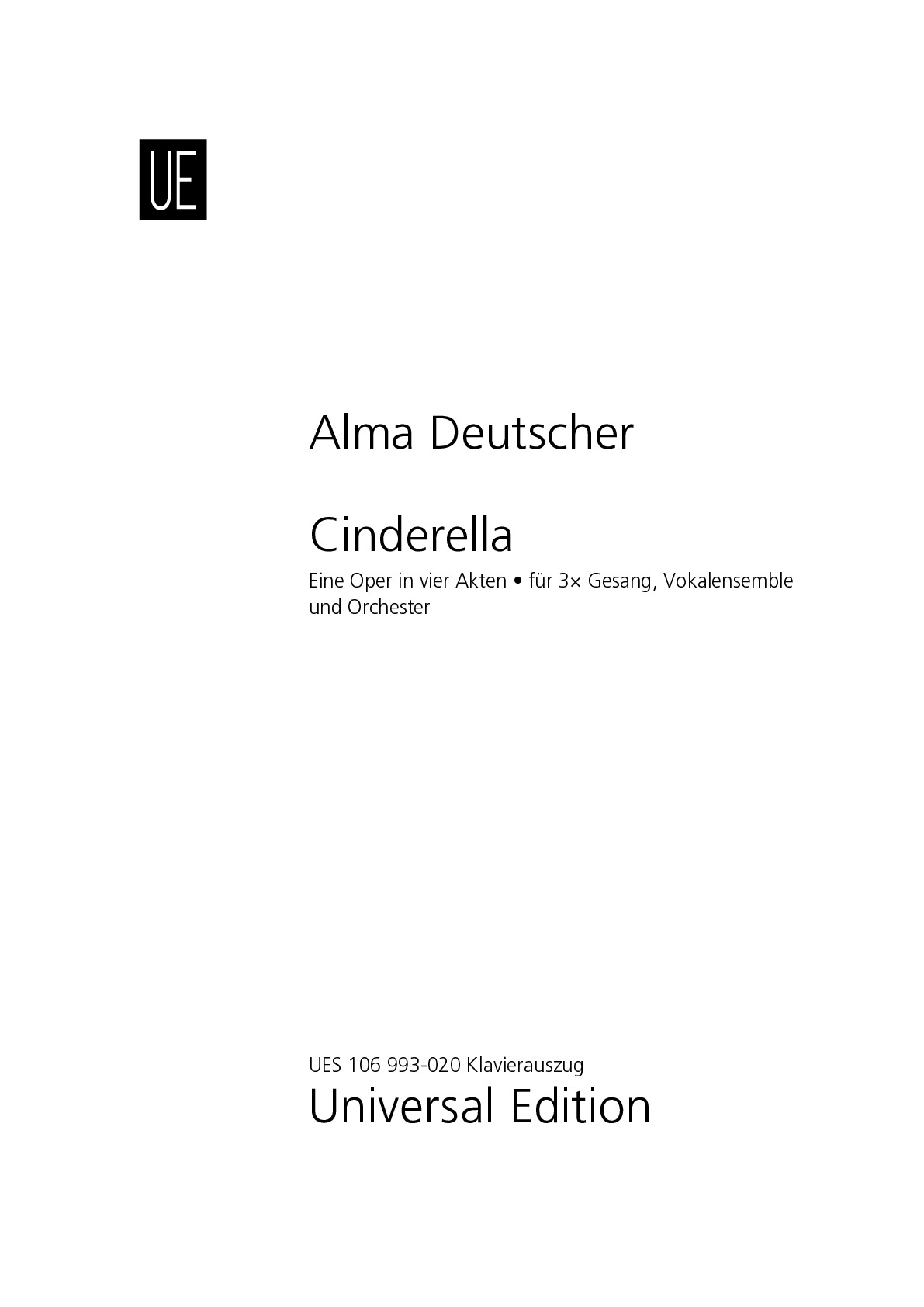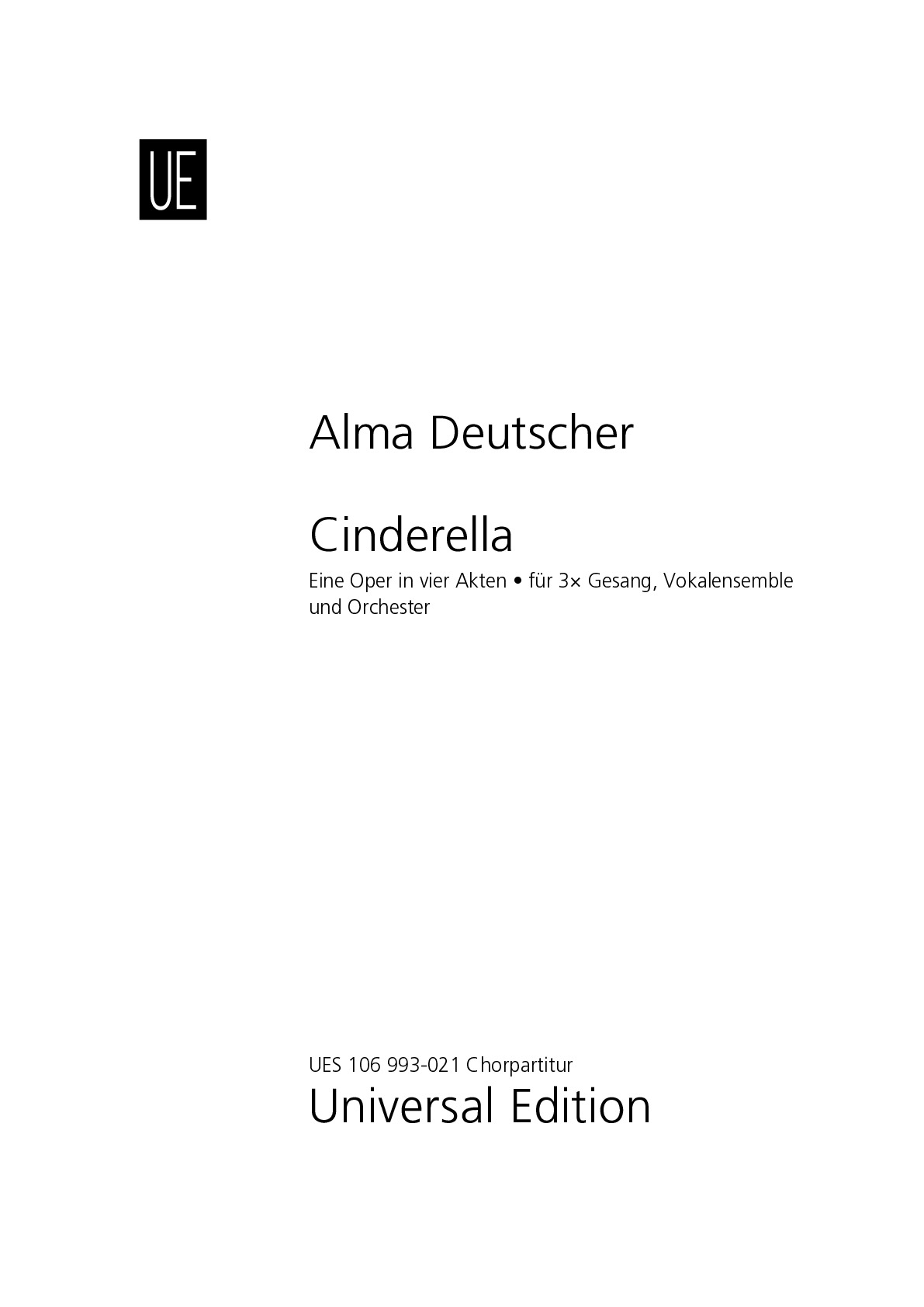

Alma Deutscher
Cinderella
Short instrumentation: 2 2 2 2 - 4 2 1 0, timp, glock, str
Duration: 155'
Libretto von: Alma Deutscher
Choir: vocal ensemble
Solos:
3× voice
Roles:
All roles All roles
Instrumentation details:
1st flute
2nd flute (+picc)
1st oboe
2nd oboe (+c.a)
1st clarinet
2nd clarinet
1st bassoon
2nd bassoon
1st horn in F
2nd horn in F
3rd horn in F
4th horn in F
1st trumpet
2nd trumpet
trombone
timpani
glockenspiel
violin I (12 players)
violin II (10 players)
viola (8 players)
violoncello (6 players)
double bass (4 players)
Cinderella
Printed/Digital
Translation, reprints and more

Alma Deutscher
CinderellaType: Dirigierpartitur
Language: Englisch (Großbritannien)

Alma Deutscher
CinderellaType: Klavierauszug
Language: Englisch (Großbritannien)

Alma Deutscher
Vokalensemble (Cinderella )Type: Chorpartitur
Language: Englisch (Großbritannien)
Sample pages
Video
Work introduction
In Alma Deutscher’s take on the traditional fairy-tale, Cinderella is not just a pretty girl who wins the Prince because of her dainty foot. Cinderella is a talented composer, envied and oppressed by her stepmother, who runs an opera house, and by her stepsisters, both operatic would-be divas. Cinderella nevertheless triumphs because of her talent: Cinderella and the Prince, a poet, will find one another, just as a poem finds its melody.
“an opera of astounding wit, craft, and musical beauty… A smart producer would mount Cinderella on Broadway. In addition to its comedic force, its score puts recent musicals to shame, whether from the Disney franchise or Andrew Lloyd Webber.” (The New Criterion, 2018).
“A young talent’s sensational burst to prominence... The once-in-a-lifetime opera-going event that had audiences standing and cheering.” Opera Today, 2017.
“When the orchestral version of Cinderella premiered in Vienna, Alma Deutscher became an instant shooting star. Cinderella is exhilarating, enchantingly moving, and spiced with finely ground comedy, and it was deservedly honoured with a standing ovation.” Orpheus Magazine (2021).
“In a time of doubt and suspicion, hate and war-mongering, to find a voice as original and as uplifting as Alma Deutscher’s, is more than a gift – it is hope. And the little child will lead them? Indeed. Alma’s original rendition of the classic fairy tale in music and song, is a chord to resound in our lives day after day.” Lois Silverstein, Opera Wire, 2017
“Alma Deutscher’s opera sparkles with original ideas… [This] amazing girl who wrote this amazingly good opera. From the inventory of music history emerge remarkable inspirations, which characterize the psychology of the characters.” (Ljubisa Tosic, Der Standard, 2016)
“In concentrated form, Deutscher hosts a firework of her catchiest ear-worms, and the twelve-year-old is a highly gifted melodist. Her cantilenas… convey bottomless grief or overflowing yearning. Supported by accomplished orchestral writing, this Cinderella shines through an effective sequence of arias, duets, ensembles and speech scenes. To sum up, the State Opera has done well to secure this Cinderella, because it is not just an attraction for the Wunderkind-arena, but a good opera in itself.” (Wiener Zeitung, Christoph Irrgeher, 2018)
What is necessary to perform this work?
There are seven soloist: Cinderella – Soprano, Griselda (Step-sister) – Soprano, Zibaldona (Step-sister) – Mezzo-Soprano, Stepmother – Soprano, Prince Theodore – Tenor, King Fridolph of Transylvanian – Bass, Fairy – Alto, Royal Minister – Speaking Role. There is also an optional children's chorus (Elves), and an opera chorus. The orchestration: 2 flutes, 2 oboes, 2 clarinets, 2 bassoons, 4 horns, 2 trumpets, 1 trombone, Strings, Timpani. Playing time ca. 2.5 hours.
